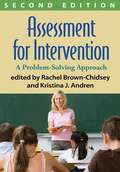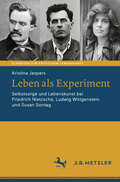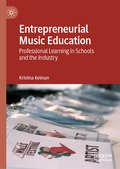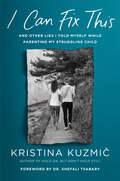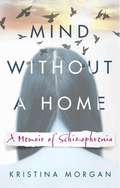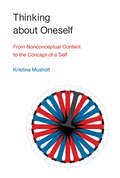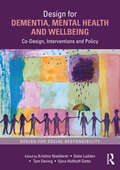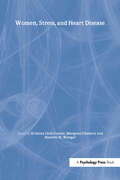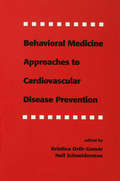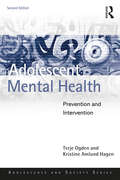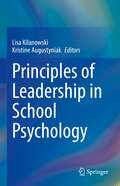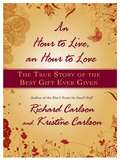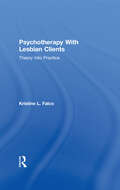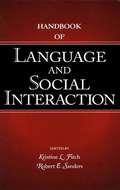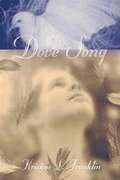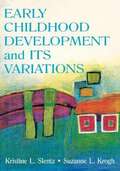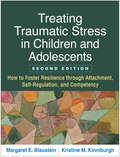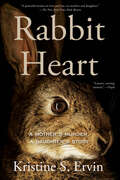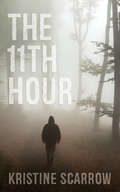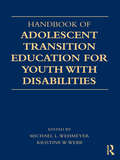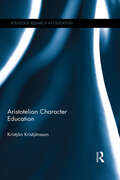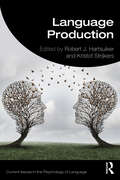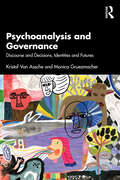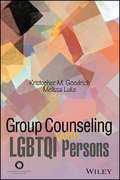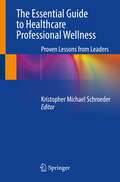- Table View
- List View
Assessment for Intervention
by Rachel Brown-Chidsey Kristina J. AndrenThis cutting-edge volume offers a complete primer on conducting problem-solving based assessments in school or clinical settings. Presented are an effective framework and up-to-date tools for identifying and remediating the many environmental factors that may contribute to a student's academic, emotional, or behavioral difficulties, and for improving all children's educational outcomes. Concise, consistently formatted chapters from leading researchers describe problem-solving based applications of such core assessment methods as interviews, observations, rating scales, curriculum-based measurement, functional behavioral assessment, and published tests. Including helpful case examples to demonstrate each method in action, the volume also offers invaluable tips on collaborating with teachers and school administrators, writing solution-focused psychoeducational reports, and evaluating the effectiveness of interventions.
Leben als Experiment: Selbstsorge und Lebenskunst bei Friedrich Nietzsche, Ludwig Wittgenstein und Susan Sontag (Schriften zur Kritischen Lebenskunst)
by Kristina JaspersFriedrich Nietzsche, Ludwig Wittgenstein und Susan Sontag beschäftigten sich intensiv mit Fragen der Selbstsorge und Lebenskunst – teils im direkten Bezug aufeinander. So sah Wittgenstein in Nietzsche ein Vorbild in Fragen der Stilistik und Introspektion; Sontag wollte Wittgenstein in der Konsequenz seiner Lebensentscheidungen folgen und Nietzsche in seinem Selbstbewusstsein sowie in seiner radikalen Selbstkritik. Diese Arbeit untersucht drei Experimentierfelder, auf denen Nietzsche, Wittgenstein und Sontag sich erprobt haben und macht diese für heute fruchtbar: Ortswechsel dienen der Veränderung des äußeren Umfelds, der Suche nach neuen Anregungen oder dem Rückzug in eine ihnen gemäße Umgebung. Die Beschäftigung mit Gesundheit und Krankheit betrifft ihre psychische wie physische Verfasstheit und schließt mentale Übungen ein. In der künstlerischen Praxis suchen alle drei neue Erfahrungen, ein anderes Selbsterleben sowie Ausdrucksmöglichkeiten jenseits der Sprache.
Entrepreneurial Music Education: Professional Learning in Schools and the Industry
by Kristina KelmanThis book addresses the gap between formal music education curricula and the knowledge and skills necessary to enter the professional music industry. It uses extensive data from a long-running research project where high school students were invited to start their own business venture, Youth Music Industries. Not only did this act as a business venture, but it also functioned as a learning environment informed by the concepts of Communities of Practice and social capital. Exploring how entrepreneurial qualities were developed, their learning was subsequently captured and distilled into a set of design principles: in this way, a pedagogical approach was developed that can be transferred across the creative industries more broadly. This book will be of interest and value to scholars of music education, as well as those preparing students for the creative industries.
I Can Fix This: And Other Lies I Told Myself While Parenting My Struggling Child
by Kristina KuzmicFrom the author of Hold On, But Don&’t Hold Still, the emotionally charged and eye-opening account of a mother who navigates the cacophony of best practices and urgent advice from parenting authorities in search of a way to support her teen as he maps his own path to mental health.When Kristina Kuzmič started to see signs that her otherwise sunny, resilient teenage son was struggling, she was sure a few simple fixes could right the ship. But over the following months, the issues her family faced became more nuanced, complicated, and pervasive than she could've predicted—and what began as a clear to do list spiraled into an emotionally fraught and seemingly endless push and pull between signs of progress and overwhelming fear. Despite her best efforts, Kuzmič had internalized a set of obligations, ideas, and unrealistic standards from parenting culture and social media that left her unprepared to guide her child when he needed her most. Featuring an urgent and affirming foreword by renowned and New York Times bestselling clinician Dr. Shefali Tsabary—Kuzmič's new book debunks ten "parenting truths&” that kept her in crisis, and delves into her insecurities and the mistakes she made to reveal invaluable lessons and transformative approaches that worked. While her family stands on the other side now stronger than ever, Kuzmič's journey calls to parents who have felt the instinct to say &“I can fix this&” in situations where good intentions far exceed our abilities to enact change.
Mind Without a Home: A Memoir of Schizophrenia
by Kristina MorganThis book brings readers straight inside the tortuous nature of the disease of schizophrenia, chronicled in short, journal-like chapters that narrate the author’s incredible story.Experience the inner world of a woman with schizophrenia in this brutally honest, lyrical memoir.Have you ever wondered what it is like in the mind of a person with schizophrenia? How can one survive day after day unable to distinguish between one's inner nightmares and the everyday realities that most of us take for granted?In her brutally honest, highly original memoir, Kristina Morgan takes us inside her head to experience the chaos, fragmented thinking, and the startling creativity of the schizophrenic mind. With the intimacy of private journal-like entries and the language of a poet, she carries us from her childhood to her teen years when hallucinations began to hijack her mind and into adulthood where she began abusing alcohol to temper the punishing voices that only she could hear.This is no formulaic tale of tragedy and triumph: We feel Kristina's hope as she pursues an education and career and begins to build strong family connections, friendships and intimacy-and her devastation as the insistent voices convince her to throw it all away, destroying herself and alienating everyone around her. Woven through the pages of her life are stories of recovery from alcoholism and the search for her sexual identity in relationships with both women and men. Eventually, her journey takes her to a place of relative peace and stability where she finds the inner resources and support system to manage her chronic illnesses and live a fulfilling life.
Thinking about Oneself: From Nonconceptual Content to the Concept of a Self (The\mit Press Ser.)
by Kristina MusholtA novel theory of self-consciousness and its development that integrates philosophical considerations with recent findings in the empirical sciences.In this book, Kristina Musholt offers a novel theory of self-consciousness, understood as the ability to think about oneself. Traditionally, self-consciousness has been central to many philosophical theories. More recently, it has become the focus of empirical investigation in psychology and neuroscience. Musholt draws both on philosophical considerations and on insights from the empirical sciences to offer a new account of self-consciousness—the ability to think about ourselves that is at the core of what makes us human. Examining theories of nonconceptual content developed in recent work in the philosophy of cognition, Musholt proposes a model for the gradual transition from self-related information implicit in the nonconceptual content of perception and other forms of experience to the explicit representation of the self in conceptual thought. A crucial part of this model is an analysis of the relationship between self-consciousness and intersubjectivity. Self-consciousness and awareness of others, Musholt argues, are two sides of the same coin. After surveying the philosophical problem of self-consciousness, the notion of nonconceptual content, and various proposals for the existence of nonconceptual self-consciousness, Musholt argues for a non-self-representationalist theory, according to which the self is not part of the representational content of perception and bodily awareness but part of the mode of presentation. She distinguishes between implicitly self-related information and explicit self-representation, and describes the transitions from the former to the latter as arising from a complex process of self–other differentiation. By this account, both self-consciousness and intersubjectivity develop in parallel.
Design for Dementia, Mental Health and Wellbeing: Co-Design, Interventions and Policy (Design for Social Responsibility)
by Kristina Niedderer, Geke Ludden, Tom Dening and Vjera Holthoff-DettoThis edited volume offers the first overview and reflective discussion of how design can contribute to people’s wellbeing and mental health in the context of dementia, mental illness and neurodiversity. This book explores and promotes holistic, salutogenic and preventive strategies that recognise and respond to people’s needs, wants, wishes and rights to further health, wellbeing and equality. Bringing together years of experience as designers and clinicians, the contributors to the book emphasise how design can be a collaborative, creative process as well as an outcome of this process, and they reveal how this is guided by mental health and design policy. Through its three parts, the book explores themes of ethics, citizenship and power relationships in co-design, providing an overview of current developments and approaches in co-design; of the culturally and value sensitive adaptation of design interventions and their applications, many of which are a result of co-design; and of policy and related standards in and for design and mental health. In this way, the book demonstrates how design can help to support people, their care partners and care professionals in promoting mental health and wellbeing, and it offers a rich resource on how to create a sustainable future for care in this domain. The book provides a unique and holistic overview and resource for designers, researchers, students, policy providers and health and care professionals to help support the development and adoption of person-centred design processes and interventions.
Women, Stress, and Heart Disease
by Margaret A. Chesney Nanette K. Wenger Kristina Orth-GomerThe issue of women's health has long been neglected. This applies to many medical areas, but it has become most evident in the field of cardiology. For a long time, cardiology has been a medical specialty which seemed to be created for men, by men--particularly in research, but also in intensive clinical care units where male patients have been most visible and dominating. Furthermore, the clinical cardiologists--their doctors--have been predominantly male. It is easy to understand that most women think they will die from cancer rather than from heart disease, but this is not true. Heart disease is the leading cause of death for women as it is for men. Female patients are frequently encountered in the cardiology department, but they are older and seem to get less visibility and attention than the male patients. Research on risk factors for heart disease has also been almost entirely focused on men. This is true for psychosocial/behavioral aspects of cardiovascular risk. Aiming to fill this gap, this volume contains contributions from outstanding international and national researchers from different fields such as sociology, psychology, epidemiology, cardiology, clinical medicine, and physiology. These professionals gathered together for an interdisciplinary seminar on women, stress, and heart disease held at the Swedish Society of Medicine. Based on the seminar, this book provides a solid foundation for empirically based scientific conclusions on this important subject.
Behavioral Medicine Approaches to Cardiovascular Disease Prevention
by Kristina Orth-Gomér Neil SchneidermanCardiovascular disease (CVD) is the number one killer of men and women in industrialized countries. In older age groups, CVD is also the most important cause for hospitalization, and, in many countries, it is the basis of early retirement from work. Thus, CVD is associated with enormous costs for care and loss of productivity, as well as for disabilities, pensions, etc. All this has motivated clinicians and scientists to develop and implement new methodologies and technologies to better care for patients who are hospitalized for heart disease. Efforts to improve care in the acute phases of coronary heart disease (CHD) have been successful. During the last decade, the immediate mortality risk of a patient admitted to coronary care for a suspected myocardial infarction or other acute coronary syndrome has decreased to less than 10%. Despite these achievements, CVD continues to represent a major threat to the health of middle-aged and elderly men and women. This volume addresses myriad aspects of CHD prevention, including biobehavioral and psychosocial factors, behavioral epidemiology, behavioral intervention models, and policy. The first section of the text provides an introduction to CVD prevention and behavioral medicine. The second section introduces two theoretically different approaches to preventive action, high-risk and population-based strategies. The third section describes and discusses the important questions of how behavioral sciences can be conceptually integrated into traditional, medically based, preventive efforts. The fourth section presents both population and high-risk behavioral intervention approaches. In summary, this volume examines the social environment and its potentials for preventive actions, reviews the psychosocial and biobehavioral mechanisms involved in these effects, and describes concrete and practical implementations of behavioral medicine knowledge as they have been applied to CHD prevention.
Adolescent Mental Health: Prevention and Intervention (Adolescence and Society)
by Terje Ogden Kristine Amlund HagenAdolescence is a period characterized by both increased susceptibility to risks and new-found strength to withstand them. Whilst most young people are well equipped to manage the changes associated with growing up, other maladjusted and marginalized adolescents already have, or are at risk of developing, mental health problems. Adolescent Mental Health: Prevention and Intervention is a concise and accessible overview of our current knowledge on effective treatment and prevention programs for young people with mental health problems. Whilst addressing some of the most common mental health issues among young people, such as behavioral problems and drug-related difficulties, it also offers a fuller understanding of the evidence-based treatment and prevention programs that are built upon what we know about how these behavioral and emotional problems develop and are sustained. The volume illustrates contemporary and empirically supported interventions and prevention efforts through a series of case studies. It has been fully updated in line with the latest NICE and DSM-V guidelines, and now includes an added chapter on implementation, and what factors facilitate implementation processes of intervention efforts. Adolescent Mental Health: Prevention and Intervention will be essential reading for students and practitioners in the fields of child welfare and mental health services, and any professional working with adolescents at risk of developing mental health problems.
Principles of Leadership in School Psychology
by Lisa Kilanowski Kristine AugustyniakThis book provides a long overdue conceptual framework for integrating evidence-based principles of school psychology leadership across NASP (National Association of School Psychologists) domains of practice. It explicates the myriad ways in which school psychologists can and should serve as leaders across the NASP domains, examines the leadership role of school psychologists within each NASP domain, and presents both historical and contemporary contexts of the domains of practice. Key areas of coverage include:Concrete examples of school psychologists as leaders in the field.Spearheading initiatives and service delivery models involving consultation and collaboration.Academic intervention planning.Behavioral and mental health services.Crisis intervention and prevention.Consultation, program evaluation, and ethics of professional practice.The book offers a cogent framework for practitioners and trainers of school psychologists to further integrate principles of leadership into their work in the field. The volume culminates with a discussion of the role of school psychologists as advocates for the practice through legislative and social justice policy.Principles of Leadership in School Psychology is an essential resource for researchers, professors, and graduate students as well as professionals in school and clinical child psychology, educational policy and practice, and social work as well as all interrelated disciplines.
An Hour to Live, an Hour to Love: The True Story of the Best Gift Ever Given
by Richard Carlson Kristine CarlsonIf you had one hour to live and could make just one phone call, who would you call? What would you say? Why are you waiting? Richard Carlson's sudden, tragic death in December 2006 left his millions of fans reeling, but even their many letters, calls, and emails couldn't erase the loss felt by his wife, Kristine. To try and come to terms with her loss, she pored over 25 years of love letters, reliving the memories and cherishing her late husband's memory. But one letter stood out. Richard had written to his wife on their 18th wedding anniversary and attempted to answer the question: if you had one hour to live, what would you do, who would you call, and what would you say? An Hour to Live, an Hour to Love is a profoundly moving book that shows the importance of treasuring each day as the incredible gift it is.
Psychotherapy With Lesbian Clients: Theory Into Practice
by Kristine L. FalcoAn explanation of who lesbians are, how psychotherapy with this population is unique, how therapists and patients are influenced by homophobia and what the therapist brings to the therapeutic relationship. It presents models of lesbian-affirmative psychotherapy and offers guidelines for therapists.
Handbook of Language and Social Interaction (Routledge Communication Series)
by Kristine L. Fitch Robert E. SandersThis Handbook stands as the premier scholarly resource for Language and Social Interaction (LSI) subject matter and research, giving visibility and definition to this area of study and establishing a benchmark for the current state of scholarship. The Handbook identifies the five main subdisciplinary areas that make up LSI--language pragmatics, conversation analysis, language and social psychology, discourse analysis, and the ethnography of communication. One section of the volume is devoted to each area, providing a forum for a variety of authoritative voices to provide their respective views on the central concerns, research programs, and main findings of each area, and to articulate the present or emergent issues and directions. A sixth section addresses LSI in the context of broadcast media and the Internet. This volume's distinguished authors and original content contribute significantly to the advancement of LSI scholarship, circumscribing and clarifying the interrelationships among the questions, findings, and methods across LSI's subdisciplinary areas. Readers will come away richer in their understanding of the variety and depth of ways the intricacies of language and social interaction are revealed. As an essential scholarly resource, this Handbook is required reading for scholars, researchers, and graduate students in language and social interaction, and it is destined to have a broad influence on future LSI study and research.
Dove Song
by Kristine L. FranklinWhen eleven-year-old Bobbie Lynn's father is reported missing in action in Vietnam, she and her thirteen-year-old brother must learn to cope with their own despair, as well as their mother's breakdown.
Early Childhood Development And Its Variations
by Suzanne L. Krogh Kristine L. SlentzProvides an overview of development, then describes principles and sequences of physical, cognitive, and social/emotional development at the infant, toddler, preschool, and primary levels. Individual differences and developmental norms are stressed throughout.
Treating Traumatic Stress in Children and Adolescents, Second Edition: How to Foster Resilience through Attachment, Self-Regulation, and Competency
by Margaret E. Blaustein Kristine M. KinniburghTens of thousands of clinicians have used this book--now revised and expanded with 50% new material--to plan and organize effective interventions for children and adolescents who have experienced complex trauma, as well as their parents and other caregivers. The Attachment, Regulation, and Competency (ARC) framework can be used in a wide range of settings to strengthen child–caregiver relationships and support healthy development and positive functioning. Packed with case vignettes and user-friendly clinical tools, the volume identifies key treatment goals and provides flexible intervention strategies and skills. In a large-size format with lay-flat binding for easy photocopying, the book includes 79 reproducible handouts and forms. Purchasers get access to a Web page where they can download and print the reproducible materials. New to This Edition *Reflects the ongoing development of ARC, including important refinements to foundational strategies and treatment targets. *More than 30 additional handouts and worksheets; all reproducible tools are now downloadable. *Greater attention to caregiver skill development throughout. *Addresses ways ARC is being used in nontraditional settings (schools, day care, primary care practices) as well as diverse clinical contexts. See also Treating Adult Survivors of Childhood Emotional Abuse and Neglect, by Elizabeth K. Hopper, Frances K. Grossman, Joseph Spinazzola, and Marla Zucker, which presents a complementary approach also developed at The Trauma Center at Justice Resource Institute.
Rabbit Heart: A Mother's Murder, a Daughter's Story
by Kristine S. ErvinA Washington Post &“Most Anticipated&” Book of the Year • A New York Times &“Must Read&” • Longlisted for the Reading the West Book AwardsFor readers of My Dark Places and The Fact of a Body, a beautiful, brutal memoir documenting one woman&’s search for identity alongside her family's decades-long quest to identify the two men who abducted—and murdered—her mother"Melding true crime with memoir, Ervin reminds us of what happens when we conflate people with the transgressions committed against them—the collateral damage we inflict when we turn human beings into moral allegory . . . A powerful treatise on love and loss, on mothers and daughters, but it is also a warning to all of us who consume true crime." —The New York Times Book ReviewKristine S. Ervin was just eight years old when her mother, Kathy Sue Engle, was abducted from an Oklahoma mall parking lot and violently murdered in an oil field. First, there was grief. Then the desire to know: what happened to her, what she felt in her last terrible moments, and all she was before these acts of violence defined her life.In her mother&’s absence, Ervin tries to reconstruct a woman she can never fully grasp—from her own memory, from letters she uncovers, and from the stories of other family members. As more information about her mother's death comes to light, Ervin&’s drive to know her mother only intensifies, winding into her own fraught adolescence. She reckons with contradictions of what a woman is allowed to be—a self beyond the roles of wife, mother, daughter, victim—what a &“true&” victim is supposed to look like, and, finally, how complicated and elusive justice can be.Told fearlessly and poetically, Rabbit Heart weaves together themes of power, gender, and justice into a manifesto of grief and reclamation: our stories do not need to be simple to be true, and there is power in the telling.
The 11th Hour
by Kristine ScarrowAnnika Dietty thinks her future is with Dylan Sopick — until they run away together. One day, after weeks of secret planning, seventeen-year-old Annika Dietty leaves home at dawn to run away with her boyfriend, the charming and popular Dylan Sopick. She tried telling her friends and family how amazing Dylan is, but seeing as they all seem set against the relationship, she’s decided their only chance is to run away together. But not everything goes according to plan, and Dylan seems to be having more and more trouble dealing with every obstacle they encounter. At first Annika is sympathetic, knowing that he’s had a harder life than she has, but very soon Dylan’s behaviour becomes unsettling, and Annika realizes that her safety is at stake. She finally admits to herself that Dylan needs support that she can’t provide. She wants to get him help — if she’ll get the chance.
Handbook of Adolescent Transition Education for Youth with Disabilities
by Michael L. Wehmeyer Kristine W. WebbTransition from secondary education to adulthood represents a period during which adolescents with disabilities face multiple responsibilities and changing roles that include establishing independence, attending postsecondary education or training, developing social networks, choosing a career, participating in their communities, and managing healthcare and financial affairs. Sponsored by the Division of Career Development and Transition (DCDT) of the Council of Exceptional Children, this handbook provides a comprehensive resource to the communities of educators, related service and agency personnel, families, caretakers, counselors, and other stakeholders who facilitate these complex transitions to adulthood for adolescents with disabilities. Comprehensive – This comprehensive volume includes coverage of historical foundations, policy, transition programming and planning, development of student skills, and program structure. It also recommends transition supports for students with specific disabilities. Organizing Taxonomy – The book is organized around a well recognized taxonomy for adolescent transition used by many states to design and reform their transition services. Expertise – The volume editors are past-presidents of the Council for Exceptional Children’s Division on Career Development and are leaders in transition research and practice. Contributors are well-recognized for their expertise in transition. Chapter Structure – Each chapter includes a discussion of evidence-based research, recommended practices, suggestions for transition personnel and families, and additional resources. This book is appropriate for researchers and graduate-level instructors in special education and vocational education, inservice administrators and policy makers, and transition service providers.
Aristotelian Character Education (Routledge Research in Education)
by Kristján KristjánssonThis book provides a reconstruction of Aristotelian character education, shedding new light on what moral character really is, and how it can be highlighted, measured, nurtured and taught in current schooling. Arguing that many recent approaches to character education understand character in exclusively amoral, instrumentalist terms, Kristjánsson proposes a coherent, plausible and up-to-date concept, retaining the overall structure of Aristotelian character education.After discussing and debunking popular myths about Aristotelian character education, subsequent chapters focus on the practical ramifications and methodologies of character education. These include measuring virtue and morality, asking whether Aristotelian character education can salvage the effects of bad upbringing, and considering implications for teacher training and classroom practice. The book rejuvenates time-honoured principles of the development of virtues in young people, at a time when ‘character’ features prominently in educational agendas and parental concerns over school education systems.Offering an interdisciplinary perspective which draws from the disciplines of education, psychology, philosophy and sociology, this book will appeal to researchers, academics and students wanting a greater insight into character education.
Language Production (Current Issues in the Psychology of Language)
by Robert J. Hartsuiker Kristof StrijkersBringing together the latest research from world-leading academics, this edited volume is an authoritative resource on the psycholinguistic study of language production, exploring longstanding concepts as well as contemporary and emerging theories. Hartsuiker and Strijkers affirm that although language production may seem like a mundane everyday activity, it is in fact a remarkable human accomplishment. This comprehensive text presents an up-to-date overview of the key topics in the field, providing important theoretical and empirical challenges to the traditional and accepted modal view of language production. Each chapter explores in detail a different aspect of language production, covering traditional methods including written and signed production alongside emerging research on joint action production. Emphasizing the neurobiological underpinnings of language, chapter authors showcase research that moves from a monologue-only approach to one that that considers production in more ecologically valid circumstances. Written in an accessible and compelling style, Language Production is essential reading for students and researchers of language production and psycholinguistics, as well as anyone who wishes to learn more about the fascinating topic of how humans produce language.
Psychoanalysis and Governance: Discourse and Decisions, Identities and Futures
by Kristof Van Assche Monica GruezmacherPsychoanalysis and Governance makes a cogent argument for the use of psychoanalytic perspectives in the understanding of governance, the process of collective decision-making that maintains and reshapes communities.This book is highly relevant to those interested in the ever-expanding field of applications of psychoanalysis and for all those willing to observe the discursive and affective underpinnings of public policy, administration, and planning. It locates the potential for self-analysis and self-transformation within governance, yet also indicates governance as the confluence of diverging understandings of the ideas of community and governance itself, as the place where competing desires and variegated patterns of fears and hopes collide and hold the transformational potential to destabilize the community.Building on Freudian, Lacanian, and other psychoanalytic traditions, the book enriches our understanding of governance, the way communities remember and forget, are haunted by the past, remain untransparent to themselves yet also retain the possibility of reinvention, of imagining alternative selves, new futures, and discover paths to move in that direction. This book will be a suitable for psychoanalysts, planners, and all those interested in informed governance.
Group Counseling with LGBTQI Persons Across the Life Span
by Kristopher Goodrich Melissa LukeThis unique resource provides strengths-based, group counseling strategies designed to meet the needs of LGBTQI clients in a variety of settings. Drs. Goodrich and Luke capture the developmental concerns of LGBTQI individuals throughout the life cycle as they establish and maintain intimate relationships, create families, encounter career concerns, and navigate other milestones and transitions. Illustrative case examples and interventions throughout the text, as well as warnings and recommendations, make this an ideal resource for practice and group work courses. After a discussion of the history of group work with the LGBTQI community, the planning and process issues that group leaders should consider in their work, and relevant ethical and legal concerns, the authors explore a range of group types and pertinent issues. Individual chapters focus on the following types of counseling: child and adolescent; same-gender adult; intersex and transgender; coming out/disclosure; school, community outpatient, and residential; couples and family; substance abuse; grief and loss; and advocacy. Chapters on group work supervision and the importance of allies round out the book. *Requests for digital versions from the ACA can be found on wiley.com. *To request print copies, please visit the ACA website here. *Reproduction requests for material from books published by ACA should be directed to permissions@counseling.org.
The Essential Guide to Healthcare Professional Wellness: Proven Lessons from Leaders
by Kristopher Michael SchroederHealthcare professionals throughout the world heed a calling that compels them to devote their lives to the treatment of their patients. While this work is generally rewarding, these professionals frequently fall victim to stressors and happiness barriers that impact their ability to function at work, the longevity of their career and the quality of their relationships outside of the hospital. Burnout, diminished career fulfilment, substance abuse, and suicide data for healthcare professionals demonstrate that the risks to this population are incredibly real. Unfortunately, there is nothing to suggest that any of these stressors are improving as pandemics, access disparities, changes in healthcare system structure, and patient complexity further escalate work-related challenges. Thankfully, there are sources of help readily available to each of us. All healthcare professionals have encountered a colleague, mentor or expert who has already navigated or has a perspective on how to thrive in the setting of hardship. This book will organize the voices of these leaders in a way that provides readers with a source for advice and inspiration. Sections of chapters are dedicated to work-life balance, family, finances, faith, resiliency, and recovery. For those healthcare workers actively caring for patients and struggling with their career, this book will serve as a source of solace and inspiration that should help to reinvigorate and extend a successful career.
